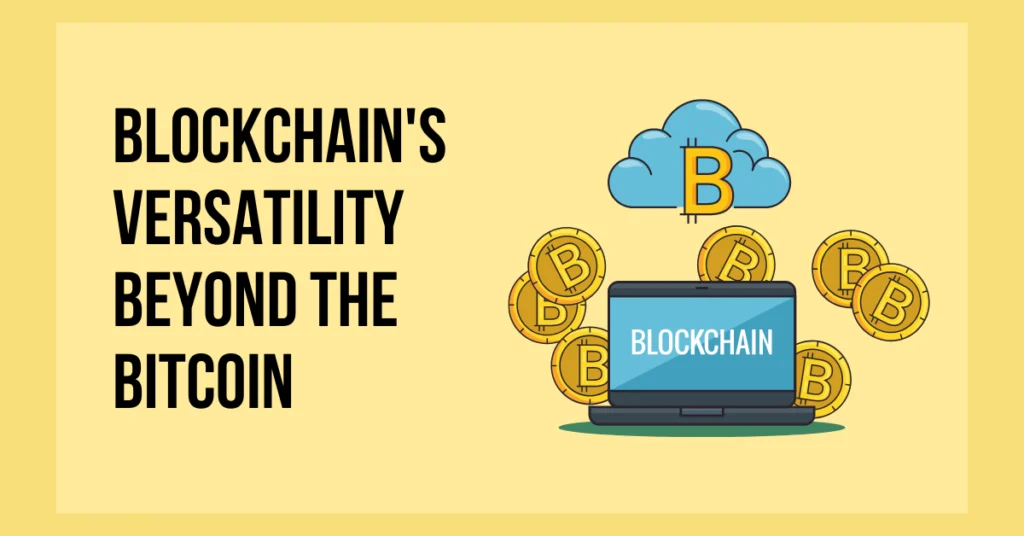In today’s fast-paced digital landscape, where technological advancements are reshaping various aspects of our lives, the emergence of cryptocurrencies has sparked both excitement and apprehension. One such cryptocurrency, Bitcoin, has not only revolutionized the world of finance but has also raised intriguing questions about its potential impact on mental wellness. As we navigate the uncharted territory of digital currencies, it’s essential to consider the holistic effects they may have on our overall well-being. This article delves into the intriguing topic of “Does Bitcoin Impact Mental Wellness?” to explore the intricate relationship between the world of digital finance and the state of our mental health. Amid the debates on Bitcoin and mental wellness, platforms such as Official Immediate Turbo provide a stable trading environment to mitigate stress.
The Technological Connection: Screen Time and Mental Health
In the contemporary digital era, characterized by rapid technological advancements, the advent of cryptocurrencies such as Bitcoin has introduced new dynamics into our lives. One aspect that merits thorough examination is the intricate connection between increased screen time associated with Bitcoin activities and its potential impact on mental health.
The prevalence of digital platforms and devices has led to a significant rise in screen time for many individuals. The accessibility and convenience offered by these platforms enable individuals to engage in Bitcoin trading, investment, and discussions with unprecedented ease. However, this convenience comes with potential consequences, particularly in terms of mental well-being.
The prolonged screen time attributed to Bitcoin-related activities can lead to various challenges to mental health. The constant exposure to digital screens not only strains the eyes but also disrupts natural sleep patterns. The blue light emitted by screens interferes with the production of melatonin, a hormone essential for regulating sleep. Consequently, irregular sleep patterns and inadequate rest can contribute to increased stress levels, reduced cognitive function, and mood disturbances.
Moreover, the fast-paced nature of the cryptocurrency market, where prices can experience extreme fluctuations within short periods, encourages frequent monitoring of digital devices. The compulsion to stay updated on Bitcoin’s price movements, news, and discussions can lead to heightened anxiety and restlessness. This anxiety may stem from the fear of missing out (FOMO) on potential investment opportunities or from the anticipation of sudden financial losses.
The virtual nature of Bitcoin transactions and interactions also means that individuals spend a significant amount of time engaged in online activities. This can potentially lead to a disconnect from real-life interactions, leading to feelings of isolation and loneliness. As social creatures, humans thrive on meaningful connections, and excessive screen time can hinder the cultivation of genuine relationships, thus affecting mental well-being.
Addressing these challenges requires a multifaceted approach. First and foremost, setting boundaries on screen time is crucial. Designating specific periods for engaging with Bitcoin-related activities and consciously unplugging from digital devices at certain times of the day can promote a healthier balance. Engaging in physical activities, spending quality time with loved ones, and pursuing hobbies offline can help counter the negative effects of prolonged screen time.
Mindfulness also plays a pivotal role in mitigating the impact of increased screen time on mental health. Being aware of one’s emotional responses to market fluctuations and consciously managing the compulsion to constantly check digital devices are essential steps. Practicing mindfulness techniques, such as meditation and deep breathing, can aid in reducing stress and promoting a sense of calm amidst the frenetic pace of the cryptocurrency world.
In conclusion, the technological connection between increased screen time associated with Bitcoin engagement and its potential impact on mental health is a phenomenon deserving of careful consideration. While the digital age offers convenience and accessibility, it also introduces challenges to our mental well-being. By acknowledging the implications of prolonged screen time and adopting strategies to manage its effects, individuals can harness the benefits of the cryptocurrency revolution while safeguarding their mental health. Balancing the digital realm with real-life experiences and prioritizing self-care are integral to thriving in this dynamic era.
Fear of Missing Out (FOMO) and Investment Anxiety
In the world of cryptocurrency, particularly with the rise of Bitcoin, the phenomenon of “Fear of Missing Out” (FOMO) has emerged as a significant psychological factor that can impact investment decisions and overall mental well-being. FOMO refers to the pervasive fear that one might miss out on a potentially profitable opportunity or experience. In the context of Bitcoin, FOMO is often triggered by rapid price increases or news of significant market developments.
The FOMO-driven behavior can lead to impulsive and emotionally charged investment decisions. When individuals observe Bitcoin’s value surging or witness others profiting from their investments, the fear of being left behind can prompt them to enter the market hastily, without conducting proper research or risk assessment. This emotional decision-making process can lead to financial losses, heightened anxiety, and a negative impact on mental wellness.
Furthermore, FOMO-induced investment decisions are often characterized by a lack of rationality and a disregard for long-term investment strategies. The focus shifts from thoughtful analysis to the urgency of not missing out on potential gains. This shortsighted approach can result in significant stress and regret if the investment doesn’t yield the expected returns or if market conditions suddenly reverse.
Investment anxiety, closely intertwined with FOMO, is another psychological aspect that individuals in the cryptocurrency market may experience. The volatile nature of Bitcoin’s price, marked by rapid fluctuations, can evoke feelings of uncertainty and unease. The anticipation of potential financial losses can lead to heightened stress levels and negatively impact mental well-being.
Moreover, the constant monitoring of Bitcoin’s price movements and market trends can exacerbate investment anxiety. The digital age enables real-time tracking of market data, but this accessibility can also contribute to a compulsive need to stay informed. This continuous engagement with market information can lead to a cycle of anxiety, as individuals find themselves constantly evaluating their investment decisions and worrying about potential outcomes.
Addressing FOMO and investment anxiety requires a combination of self-awareness and strategic decision-making. Developing a disciplined investment approach based on thorough research, risk management, and a long-term perspective can counteract the impulsive nature of FOMO. Setting clear investment goals, diversifying portfolios, and seeking advice from financial professionals can help individuals make informed decisions and mitigate anxiety.
Cultivating emotional resilience is also essential in navigating the cryptocurrency market’s ups and downs. Understanding that market volatility is inherent to the asset class and that short-term fluctuations do not necessarily reflect long-term trends can help alleviate anxiety. Practicing mindfulness techniques, such as grounding exercises and relaxation strategies, can aid in managing the emotional toll of investment-related stress.
FOMO and investment anxiety are psychological factors that play a significant role in the world of cryptocurrency investments, particularly in the context of Bitcoin. The fear of missing out on potential gains and the uncertainty associated with market fluctuations can impact decision-making and mental well-being. By adopting a disciplined and strategic approach to investing, fostering emotional resilience, and seeking balance, individuals can navigate the cryptocurrency landscape with greater confidence and prioritize their mental health throughout their investment journey.
Navigating the Social Aspect: Online Communities and Mental Health
In the digital age, online communities have become integral to various aspects of our lives, including our engagement with cryptocurrencies like Bitcoin. These virtual communities provide a platform for individuals with shared interests to connect, exchange ideas, and seek support. However, while online communities offer a sense of belonging and camaraderie, they also raise questions about their potential impact on mental health.
Online communities centered around Bitcoin can have positive effects on mental well-being. They create spaces where enthusiasts, investors, and novices can share their experiences, insights, and knowledge. These interactions can lead to a sense of belonging, as individuals connect with like-minded people who understand their interests and passions. The exchange of information within these communities can be empowering, enabling individuals to make informed decisions and learn from others’ experiences.
Moreover, online communities can offer emotional support during both positive and challenging times in the cryptocurrency journey. For instance, celebrating the achievement of investment goals or weathering market downturns becomes more meaningful when shared with a supportive community. This emotional connection can counter feelings of isolation that individuals may experience, especially if their immediate social circles are unfamiliar with or skeptical about cryptocurrencies.
However, the social aspect of online communities also presents potential challenges to mental well-being. The anonymity provided by the digital space can sometimes lead to negative behaviors, such as trolling or hostile interactions. These behaviors can create a toxic environment that fosters stress, anxiety, and a sense of unease. Negative interactions can undermine the positive effects of community support and hinder individuals from fully benefiting from these online spaces.
Additionally, the constant influx of information and opinions within online communities can contribute to information overload and decision fatigue. As individuals navigate discussions, news, and predictions related to Bitcoin, they may feel overwhelmed by conflicting viewpoints and uncertain about their choices. This cognitive overload can heighten stress levels and erode confidence in one’s decision-making abilities.
To navigate the social aspect of online communities in a way that supports mental well-being, individuals can adopt several strategies. First, it’s essential to curate the communities they engage in. Choosing reputable, positive, and supportive communities can help mitigate exposure to negativity and toxic behavior. Participating actively, contributing constructively, and seeking out valuable insights can also enhance the overall experience.
Setting boundaries on online engagement is another crucial aspect. While the immediacy of digital interactions is appealing, constant connectivity can lead to burnout. Allocating specific periods for engaging with online communities and disconnecting when necessary allows for better balance and preserves mental health.
Finally, maintaining perspective is vital when interacting within online communities. Remembering that the digital space offers a limited view of individuals’ lives and experiences can help reduce social comparison and feelings of inadequacy. Focusing on one’s own journey, learning at a comfortable pace, and seeking professional advice when needed can all contribute to a healthier online engagement experience.
Online communities have become an essential part of the cryptocurrency landscape, offering a sense of belonging, information sharing, and emotional support. However, the social aspect also introduces challenges related to negativity, information overload, and burnout. By selecting communities mindfully, setting boundaries, and maintaining perspective, individuals can harness the positive aspects of online engagement while safeguarding their mental well-being. Balancing the benefits of community connection with the need for self-care is key to thriving in the digital world of Bitcoin and beyond.
Regulation, Security, and Peace of Mind
As Bitcoin and other cryptocurrencies gain prominence in the financial landscape, the importance of regulation and security cannot be overstated. These factors not only impact the functionality and trustworthiness of digital assets but also play a significant role in individuals’ mental well-being as they navigate the complex world of cryptocurrency.
Regulatory developments within the cryptocurrency space are of paramount importance. The absence of clear regulations can create uncertainty and apprehension among investors and users. Regulatory guidelines provide a framework for legal compliance, consumer protection, and the prevention of fraudulent activities. For individuals interested in engaging with Bitcoin, understanding the regulatory landscape in their jurisdiction can alleviate concerns and provide a sense of security.
Moreover, robust regulations can enhance the legitimacy of cryptocurrencies as a financial asset. As regulatory bodies establish rules for exchanges, taxation, and reporting, cryptocurrencies can become more integrated into traditional financial systems. This integration can enhance investor confidence and contribute to a more stable market environment, ultimately leading to greater peace of mind for those considering cryptocurrency investments.
Security is another crucial aspect that significantly impacts individuals’ mental well-being when dealing with cryptocurrencies. The decentralized nature of cryptocurrencies provides enhanced privacy and control over one’s financial assets. However, it also introduces security challenges, as individuals become solely responsible for safeguarding their digital wallets and private keys.
Instances of hacking, phishing attacks, and scams have raised concerns about the security of cryptocurrencies. News of high-profile breaches can trigger anxiety and discourage potential investors from entering the market. Addressing security concerns requires a combination of technical measures and user education. Employing hardware wallets, utilizing two-factor authentication, and staying vigilant against phishing attempts can bolster security measures.
Furthermore, the concept of peace of mind in the context of cryptocurrencies extends beyond individual security practices. The knowledge that cryptocurrency exchanges and platforms prioritize security and adhere to industry best practices is crucial. Transparency in reporting security incidents and proactive communication can foster trust among users and investors, reducing apprehension about potential risks.
To navigate the nexus of regulation and security effectively, individuals can take proactive steps. Staying informed about regulatory developments in their jurisdiction and seeking guidance from legal professionals can provide clarity on compliance requirements. Conducting thorough research before choosing a cryptocurrency exchange or wallet can also contribute to a more secure experience.
The interplay between regulation, security, and peace of mind is a critical consideration for individuals engaging with cryptocurrencies like Bitcoin. The evolution of clear regulations and robust security measures is essential for fostering a healthy and sustainable cryptocurrency ecosystem. By staying informed, adopting best practices, and making informed decisions, individuals can navigate the complex landscape of cryptocurrency with greater confidence and mental well-being. As the cryptocurrency market continues to mature, prioritizing both regulatory compliance and security will be integral to a positive and secure user experience.
Conclusion
In the ever-evolving realm of cryptocurrencies, the question of whether Bitcoin’s impact extends beyond financial markets to influence mental wellness remains a complex one. As we’ve examined the various dimensions of this relationship, it’s clear that the digital age presents both opportunities and challenges for our mental well-being. From financial stress triggered by market volatility to the allure of online communities and the potential for FOMO-induced anxiety, Bitcoin’s influence is far-reaching.





